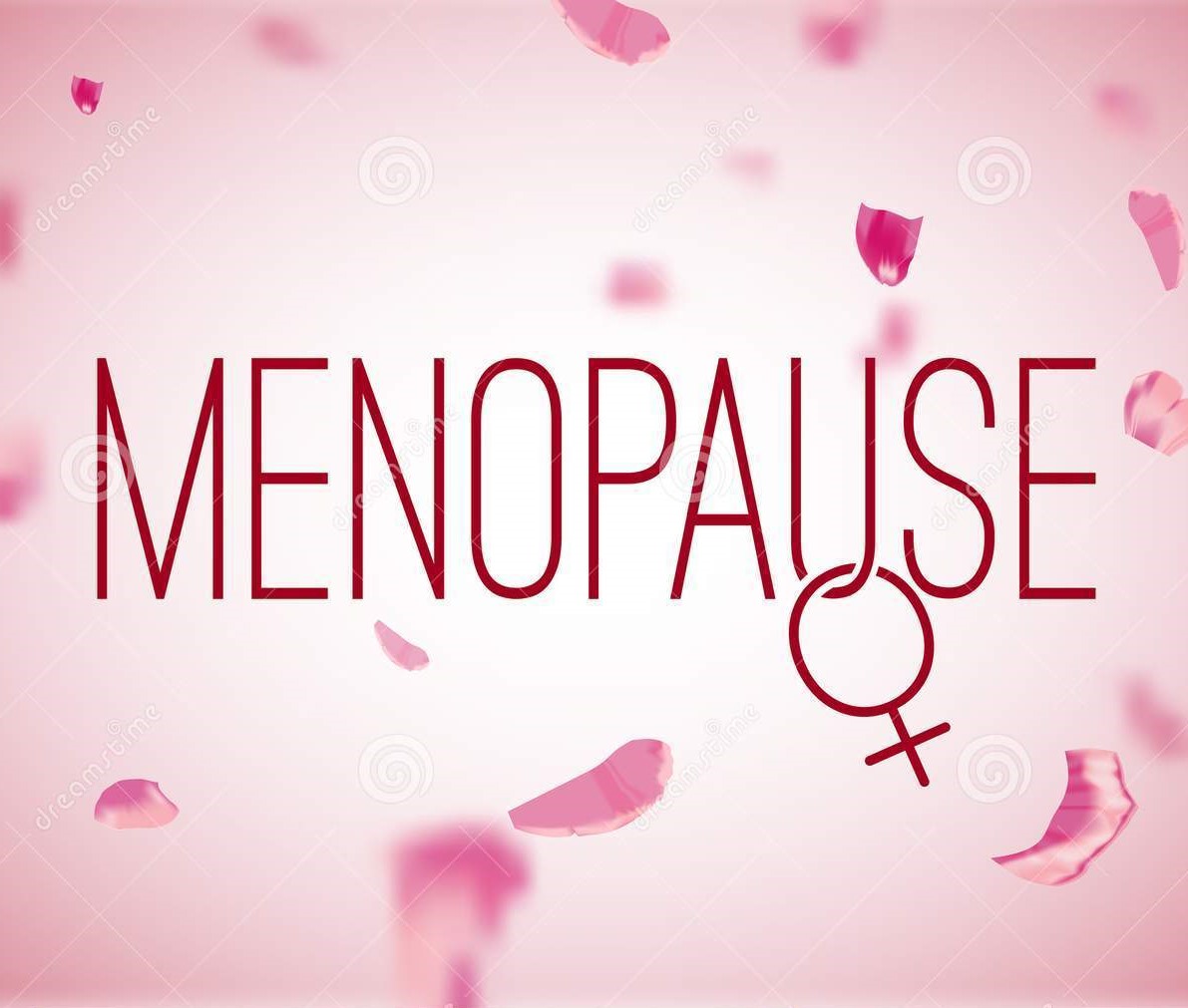
Women’s Health And Menopause
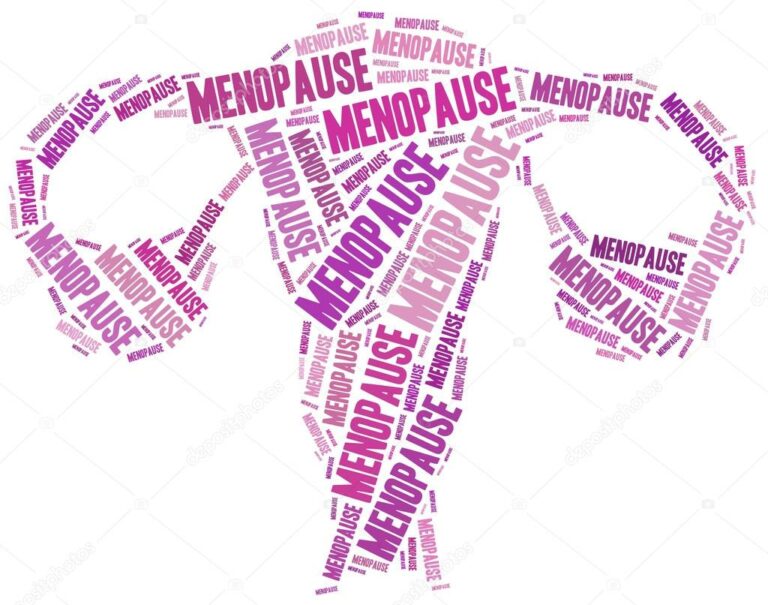 Menopause is a natural biological process and when it knocks on our door, perspective is needed, because not accepting it can be going against the tide of this journey instead of flowing with it.
Menopause is a natural biological process and when it knocks on our door, perspective is needed, because not accepting it can be going against the tide of this journey instead of flowing with it.
Needless to say, each woman is unique and passes this threshold genuinely, so it is important to realize that a lot of inner listening is required for each woman both physically, mentally, and spiritually to find what works for her with the importance of creating women´s health.
It is a matter of consciously embracing this stage, being open to new information as well as a lifestyle that benefits us and helps us in the process, since the body begins to live a hormonal change that can cause a certain imbalance in our body-mind.
1. What is Menopause?
Menopause is the cessation of menstruation and the reproductive life of women as part of natural aging, as the ovary stops producing the female sex hormones that are estrogens. In the beginning, irregular periods start until there comes a time when they disappear.
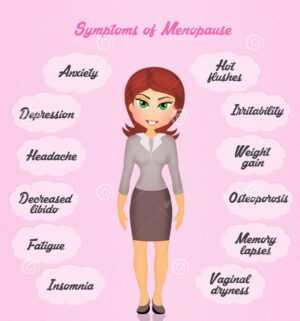 Although, it´s important to mention that it does not happen overnight unless it has been induced by chemotherapy, and a woman is considered to be in this period when in the last year she has not had any periods at all.
Although, it´s important to mention that it does not happen overnight unless it has been induced by chemotherapy, and a woman is considered to be in this period when in the last year she has not had any periods at all.
The average age of Menopause is between 45-55 years of age, being considered early when it is before 45, although the approximate average is 51 years.
Until very recently Menopause was a ¨Period of life¨ that was considered pathological, although it should not be treated as a disease.
But it is important to mention that there are problems with it when it is induced by drugs or cancer surgery!.
Why Estrogens?
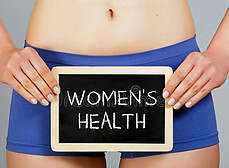 Sex hormones or estrogens are extremely important since they are responsible for many things such as:
Sex hormones or estrogens are extremely important since they are responsible for many things such as:
Ovulation, the development of breasts and pubic hair, responsible for the distribution of body fat, cholesterol regulation, fats metabolism, favor the regulation of blood vessels, protect from cardiovascular diseases, improve insulin sensitivity, prevent loss of muscle mass, promote collagen formation, stimulate libido and sexual appetite.
Hence, it is important to know that when this hormone decreases, symptoms appear!
2. Symptoms
Whenever the period is lost, not only the livid goes away but one of the things that are quite common from menopause is the loss of bone and muscle mass (1% every 10 years during life), but after the 50ts it accelerates, hence you have to be very careful and take measures.
Since if there is an adequate muscle mass, it will help us to have stronger bones, preventing osteoporosis, hip fractures, etc. The muscle will stimulate bone production, reduce inflammation, and the incidence of cancer!.
Among the various symptoms associated with Menopause, the earliest and most frequent is the hot flashes one, recommend to relieve naturally, it´s like a sudden embarrassing sensation on the face, neck, and the upper part of the thorax, sometimes accompanied by sweating, palpitations whose frequency is variable.
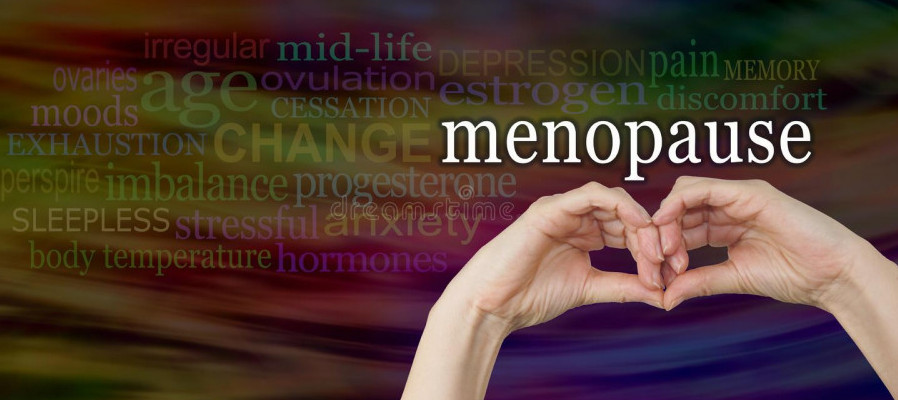 Difficulty sleeping, insomnia, headache, dizziness, hair loss, vaginal dryness, dryness on the skin, and itching are also frequent, the uterus will decrease, incontinence and frequent urine infections may occur. And of course, the change of hormones also affects the mood and there may be more irritability, apathy, discouragement, so it´s recommended to take a natural relief to lift up your life and alleviate these symptoms!
Difficulty sleeping, insomnia, headache, dizziness, hair loss, vaginal dryness, dryness on the skin, and itching are also frequent, the uterus will decrease, incontinence and frequent urine infections may occur. And of course, the change of hormones also affects the mood and there may be more irritability, apathy, discouragement, so it´s recommended to take a natural relief to lift up your life and alleviate these symptoms!
And due to the reduction of estrogens, cardiovascular diseases can appear as well!
3. Tips to make it an optimal phase
I encourage all women to avoid chemicals unless they are needed, the idea is to replace that loss of hormones and eliminate symptoms with a healthy lifestyle without resorting to hormone replacement therapy.
Although, it´s recommended when we enter menopause that we already practice a healthy lifestyle because this way we will have much less of these symptoms, as well as fewer diseases associated with Menopause:

- Smoke or Drink should be avoided
- Strength exercise Practice of 30-45 minutes 3 times a week combined with 3 days of cardio, will help to regulate insulin levels and estrogen levels, maintain weight and bone density, increase muscle and prevent cancer as well as cardiovascular diseases.
- Quality of sleep between 7-8 hours.
- Sunbathing daily will help create Vitamin D (which makes us have strong bones, regulate mood change plus prevent cancer risk).
- Practice Yoga & Meditation will help you reduce sleep problems, hot flashes, mood swings, stress, muscle, and joint pain, plus a more conscious Menopause.
The truth is that even if we have good genetics, how we get older will depend above all on how we rest, how we eat, and the exercise we do, so in the end, we can choose the way we do it!
4. Foods to reduce the symptoms of Menopause
Due to the decrease in estrogen, there may be a change in metabolism, so the utilization of fats and carbohydrates changes, insulin resistance, there may be diabetes, the elevation of blood pressure and lipids, increase in fat around the abdominal area. We can counteract these metabolic changes through anti-inflammatory foods, antioxidants that improve our intestinal microbiota plus foods rich in calcium:

- Foods rich in Omega 3 are anti-inflammatory, decrease the risk of cardiovascular disease and symptoms associated with menopause such as sesame seeds, chia seeds, hemp seeds, and oily fish.
- Natural phytoestrogens such as oat flakes, legumes, fermented soy products (tofu, miso, tempeh), alfalfa. It is also important to replace refined carbohydrates such as sugar, white flour, etc. that increase the symptoms of menopause.
- Decrease meat consumption to avoid the acidifying effect preventing bone decalcification (osteoporosis).
- Foods that are rich in calcium, such as a handful of raw almonds, a tablespoon of sesame seeds (there is not only calcium in milk), cheese, algae, sardines, green leafy vegetables.
- Probiotics help us metabolize estrogen. Foods such as yogurt, kefir, apple cider vinegar, unpasteurized olives, chucrut, soy sauce
- Foods that are rich in Vitamin E will help reduce hot flashes and night sweats such as wheat germ oil, sunflower oil, extra virgin olive oil, almonds, walnuts (nuts in general), fennel, sweet potato, peas, legumes, oat flakes, sesame, parsley, plums, avocado, leek, tomato.
And especially within fruits and vegetables those that have more flavonoids, since they will help us with the symptoms of menopause, for example, strawberries, red fruits, lemon, mandarins, cherries. That is, a diet rich in fruits and vegetables, legumes, nuts, reducing as well the consumption of red meat and derivatives, such as processed, sugary foods.
Try to change as well animal protein for a vegetable one, fish, and eggs, plus replace sugar for foods that are sweetened naturally.
5. Conclusion
Whether you are already in menopause or you have a few years left you can mitigate its discomforts by changing to a healthier lifestyle and diet. Remembering always, that it´s never too early to take care and have a Happy Menopause giving the body and soul what it needs most: A lot of Love!
I hope you enjoyed this article, and if you have any questions, please ask me anytime.
Love always,
Mónica Segura Ferrero
Recent Posts
- Women’s Health And Menopause
- How To Eat A Healthy Breakfast
- Best Anti-inflammatory Foods
- Turmeric-The Queen Of Spices
- Yoga Classes/Contact